- June 19, 2018
- Posted by: SportsV
- Categories: Case Studies, Featured Articles, Features, Home News, Industry News, News
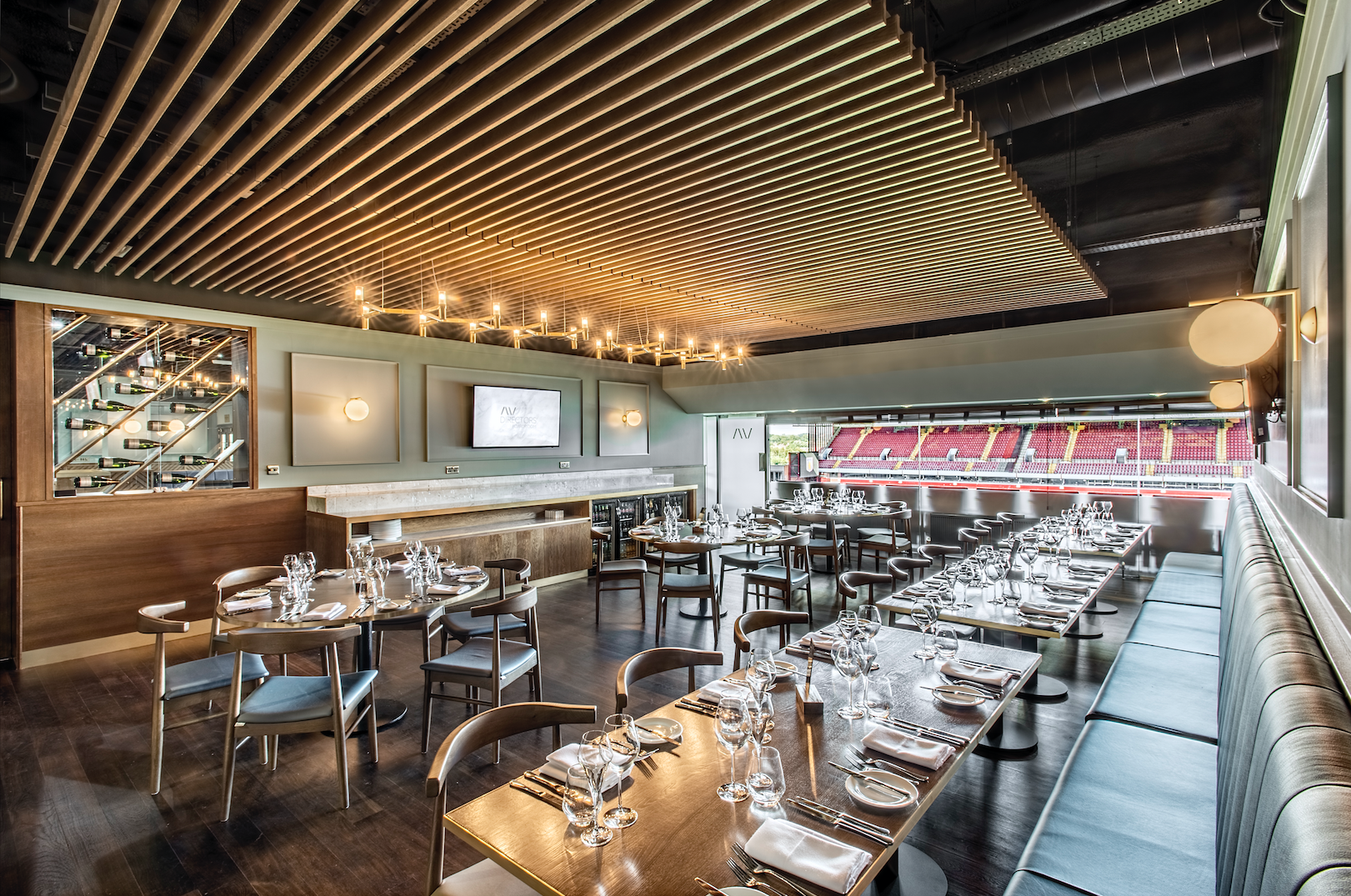
In this latest insight report, Roy Westwood, Founder and Strategic, Creative and Innovations Director at Forward Associates, discusses the evolution of the corporate box.
The corporate box is not what it used to be. Once considered the apex of entertaining, today’s hospitality guest is happier thinking out of the box, increasingly attracted by informality, exclusivity and the experiential.
As such, the corporate box, despite often being located in the best vantage points in the venue, is under threat from an unlikely source. In a bid to get closer to the action, guests are eschewing the traditional in favour of the unusual. From sky terraces to bunker suites, from the director’s lounge to the players’ tunnel, the challenging and the back of house space now carry the big price-tags.
Informality has become a priority
Informality is in vogue. Guests are no longer happy confined to uniform boxes. This move away from formal hospitality is driven by a number of factors, from the prevailing trends within the wider restaurant market, to the demands of the younger demographic who are increasingly calling the shots.
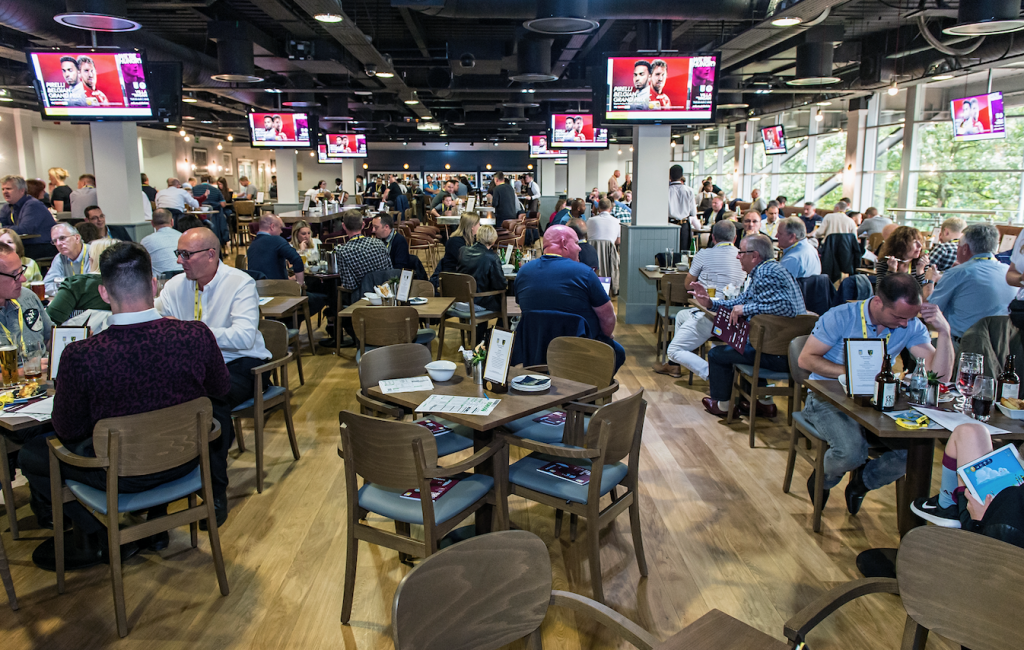
Generation Y
New audiences call for new ideas. The influence of Generation Y – who are set to become a core demographic over the next decade as they enter into their peak earning power – are the catalyst behind much of the change we are seeing. Of all the audience groups, they demand an event they can immerse themselves in.
They want a more relaxed atmosphere, backstage access and contact with the athletes or performers. In a nutshell, they want an experience. They are adventurous, active and tech-savvy, which means boxes, if they are to survive, need to focus on exploration and interaction.
As formal dining falls out of fashion, casual dining restaurants in the UK now attract an extra 47 million visits annually than they did five years ago.
The accent is on the entertainment
Corporate entertainment has started to change with the accent firmly on the entertainment and less on the corporate. Traditionally boxes were conceived as mini offices, designed for the business market. However, hospitality today has a much wider appeal, attractive to a much broader audience, from the diehard sports fan to those a little more indifferent.
The sports fan is motivated by the action on the pitch, but there is a sizeable audience driven by the social side of the hospitality experience. This means the unusual space or the corner seat has just as much currency as the traditional corporate box.
The future for the corporate box
While new-build stadia are reducing the number of corporate boxes in favour of restaurants and lounges, existing venues are tapping into the trends of the day by reimagining the corporate box as a fully enclosed entertainment venue. These can be experience-led, such as private dining rooms where the menu is cooked to order in front of the guests, or built around a specific activity – offering new and different reasons to visit a venue. Either way, it is clear there is a significant opportunity to change the traditional spaces for the better.
Make it personal
The corporate confines of the traditional box have become an opportunity. Box-holders are increasingly taking control of what can be a sterile environment and are redesigning them in their own image. Rather than every box looking the same, guests can personalise the space to create something much more in line with their own values, or those of their company.
Take Harvey Nichols for example. They have a corporate box at the Etihad Stadium, the home of Manchester City, and have used the blank canvass offered by this most traditional of spaces to create in their own words ‘a bespoke fashion and football experience’.
Environments which can flex in mentality – from an interior that welcomes first thing to one that inspires at the end of the day – will extend the proposition long after the final whistle.
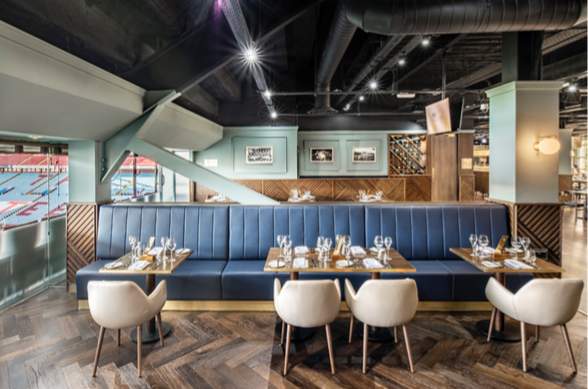
The box at the Etihad Stadium is decorated with the latest must-haves in fashion, food and beauty. Experts are on hand to guide shoppers, who have paid for the experience, through the day. A number of experiential add-ons are also included, such as a wine masterclass, personal shopping and pampering treatments.
Harvey Nichols haven’t stopped there. In addition to changing the look, feel and indeed the whole experience of the corporate box, they have personalised the food and drink too, with a specially devised menu from their own in-store brasserie.
An all-day experience
The new generation of hospitality user is used to having choice. This makes restricting them to one area, for a regimented course of entertainment, a hard sell.
This is not just an emotional need, but a practical one too. A four-walled white box may feel right for a formal dinner but if we want guest to feel comfortable over long periods, it becomes a very restrictive environment.
In addition to the need for different experiences, it is equally valuable to be able to transcend the time of day. Environments which can flex in mentality – from an interior that welcomes first thing to one that inspires at the end of the day – will extend the proposition long after the final whistle.
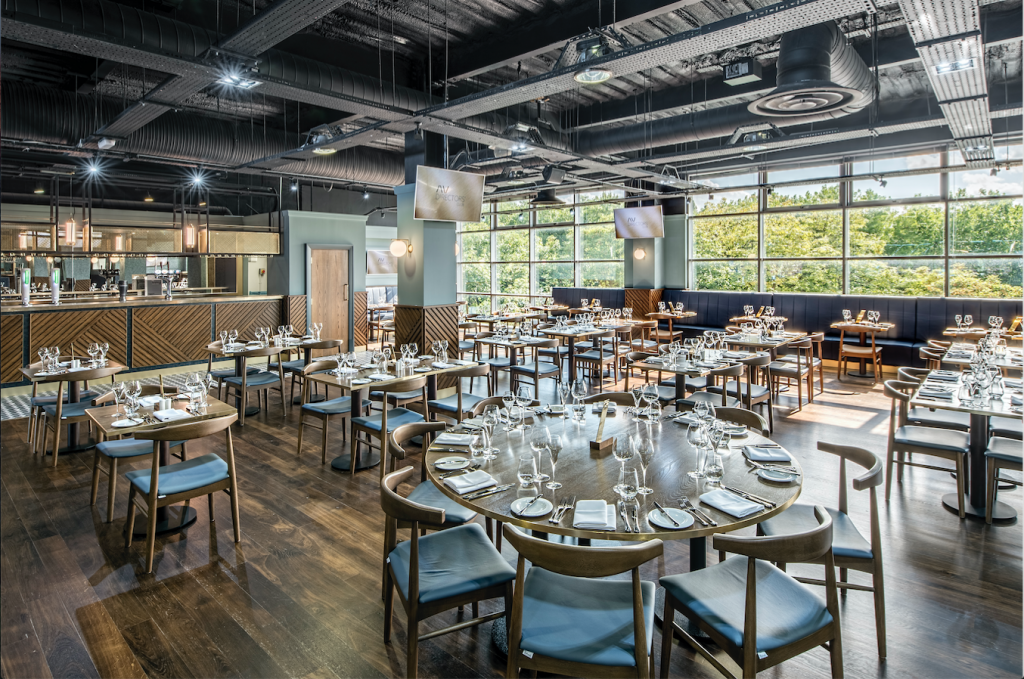
Keeping it real
Guests instinctively know if something is authentic. However good the meal and the service, the box can be a stale environment and, with little correlation to the event, can end up an unfulfilling experience.
This is admittedly a challenge. Hospitality designers need to create spaces that work on the matchday but are still able to function during the rest of the year. Whatever route is taken, it is imperative the space created is in keeping with the concept.
Putting a price tag on the priceless
The unusual and the invaluable will always make a statement. For instance, at Twickenham Stadium, insurance firm QBE converted their hospitality box into a pub in order to make staff and customers relax in what was traditionally a sterile environment.
Food at the forefront
Where the box does have a natural advantage is in its smaller footprint – ideal if looking to create something personal. So, reimagined as a private dining room, culinary masterclass, mixology or wine tasting class, it can become much more immersive and engaging.
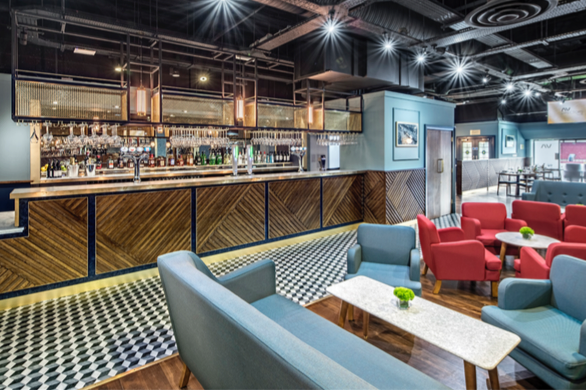
Conclusion
The new wave of hospitality may only be in its infancy but is already changing the way operators look at their spaces. Venues are compelled to place the guest experience above the practical if they want to flourish in today’s experience-led economy.
And while the big-ticket ideas, such as players entering the field of play through a hospitality lounge, or the ability to entertain pitchside, are often challenging, changing the shape, experience or the role of the hospitality box is a relatively easy way for venues to create the personal and the immersive experiences demanded.
Main image, top: The first fruits of the exclusive partnership between architects Nick Leith-Smith and venue strategists Forward Associates is The Directors’ Club – a 180-seat, fine-dining restaurant at Villa Park.
Images, courtesy: Forward Associates and Nick Leith-Smith
Many thanks to Roy Westwood for this in-depth insight report. NB: Further reports will follow soon.

About the Author
Transforming venues in search of the perfect guest experience has been Roy Westwood’s passion for 25 years. It’s why he founded Forward Associates in 2014, following a 25-year career working for some of the hospitality industry’s biggest players. This included sitting on the executive board of Levy Restaurants UK for almost a decade and who he continues to work closely with today.
During his various roles, Roy has helped shape the creative direction of many of the world’s most prestigious sporting institutions, from The Wimbledon Championships/AELTC to international rugby to brand new stadia projects for some of the most high profile English Premier League (EPL) and English Football League (EFL) football clubs.
Forward Associates is a fast-growing consultancy for a fast-moving industry. In addition to sport, the practice has significant experience on the high street and in hotels with Hampton by Hilton. They work in conferencing and exhibitions with ExCel and SECC, in the leisure sector with Somerset House, Twycross, Whipsnade and Bristol Zoos and in arenas with The O2 – London, Wembley Arena and The SSE Hydro.
Forward Associates was the obvious natural progression. This is an industry that never stands still and to offer clients the best possible service, Forward Associates, with its handpicked team of industry experts, allows us to act much quicker on market intelligence.
The company offers an end-to-end solution, able to see a project through from concept to completion. From venue analysis and masterplanning, to branding and hospitality tiering, Forward Associates have an enviable track record of creating award-winning, commercially successful venues and attractions that never forget the guest experience is sacrosanct.
Commerciality is important and it’s a commitment the company continues to explore with a new financial modelling product in development which will better evaluate return on investment for high capital expenditure projects. In summary, Forward Associates improves guest experience to increase the long-term commercial success of your business.
For further information, email Roy at: Roy@forwardassociates.co.uk or visit his LinkedIn profile: linkedin.com/in/roy-westwood-30090228
Roy Westwood is one of the many industry experts that will be imparting their experiences and know-how at Europe’s first Premium Seat event, ALSD International, coming to London this October, 11-12. Click on the below banner advert for information on the speakers, conference programme and details on how to secure your place at this must-attend event…
#SportsVenueBusiness – keeping you in the know!


